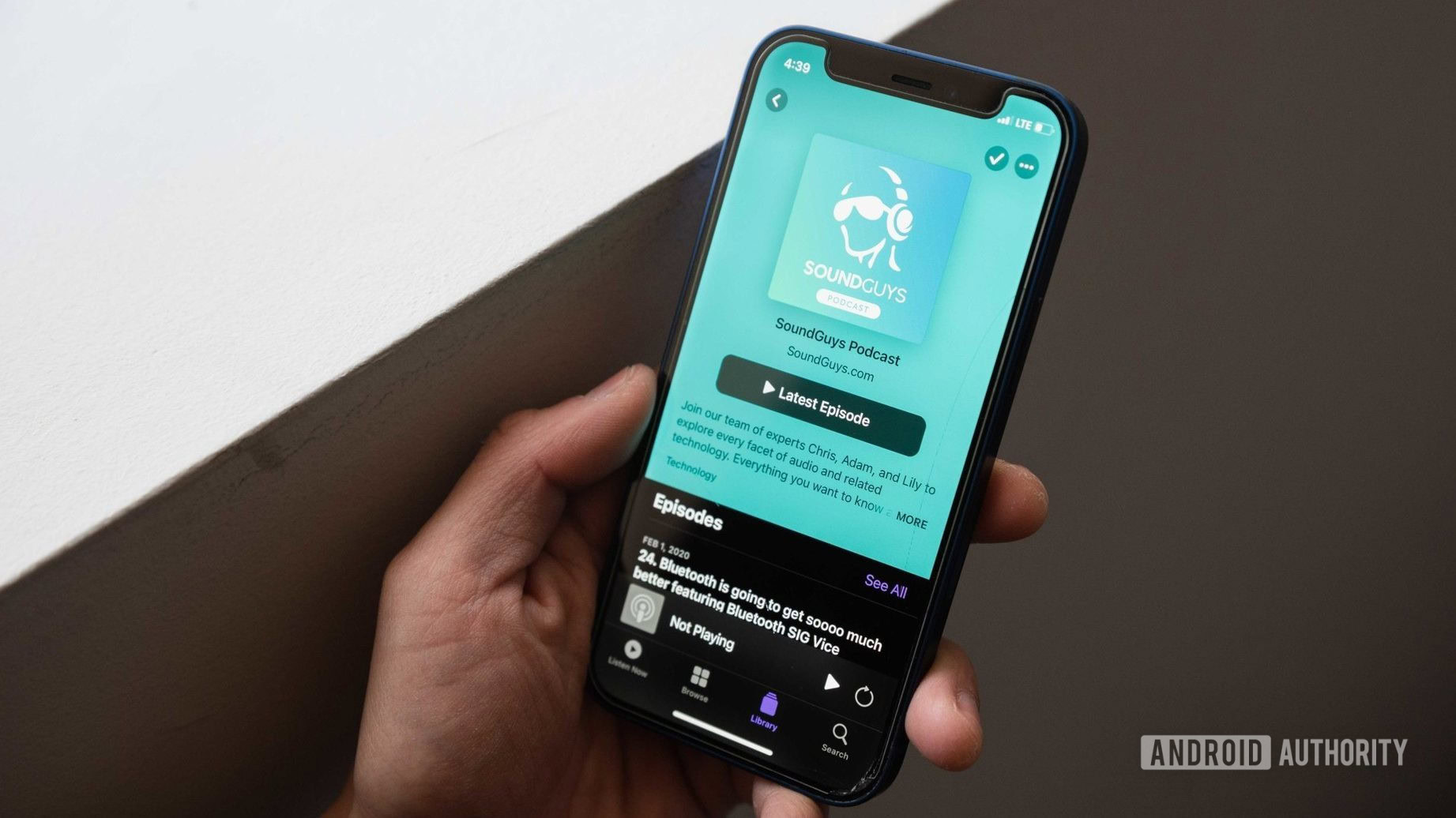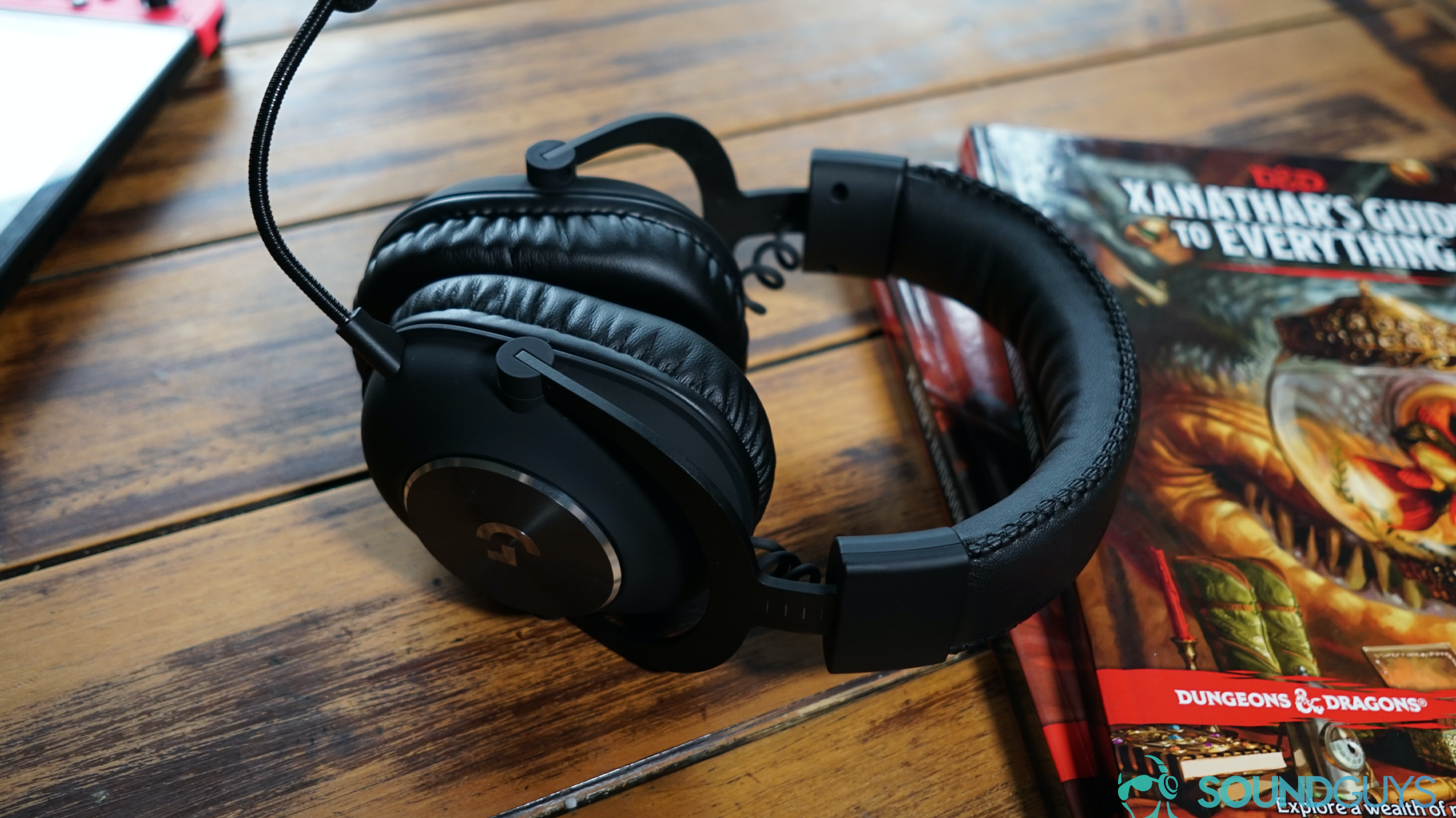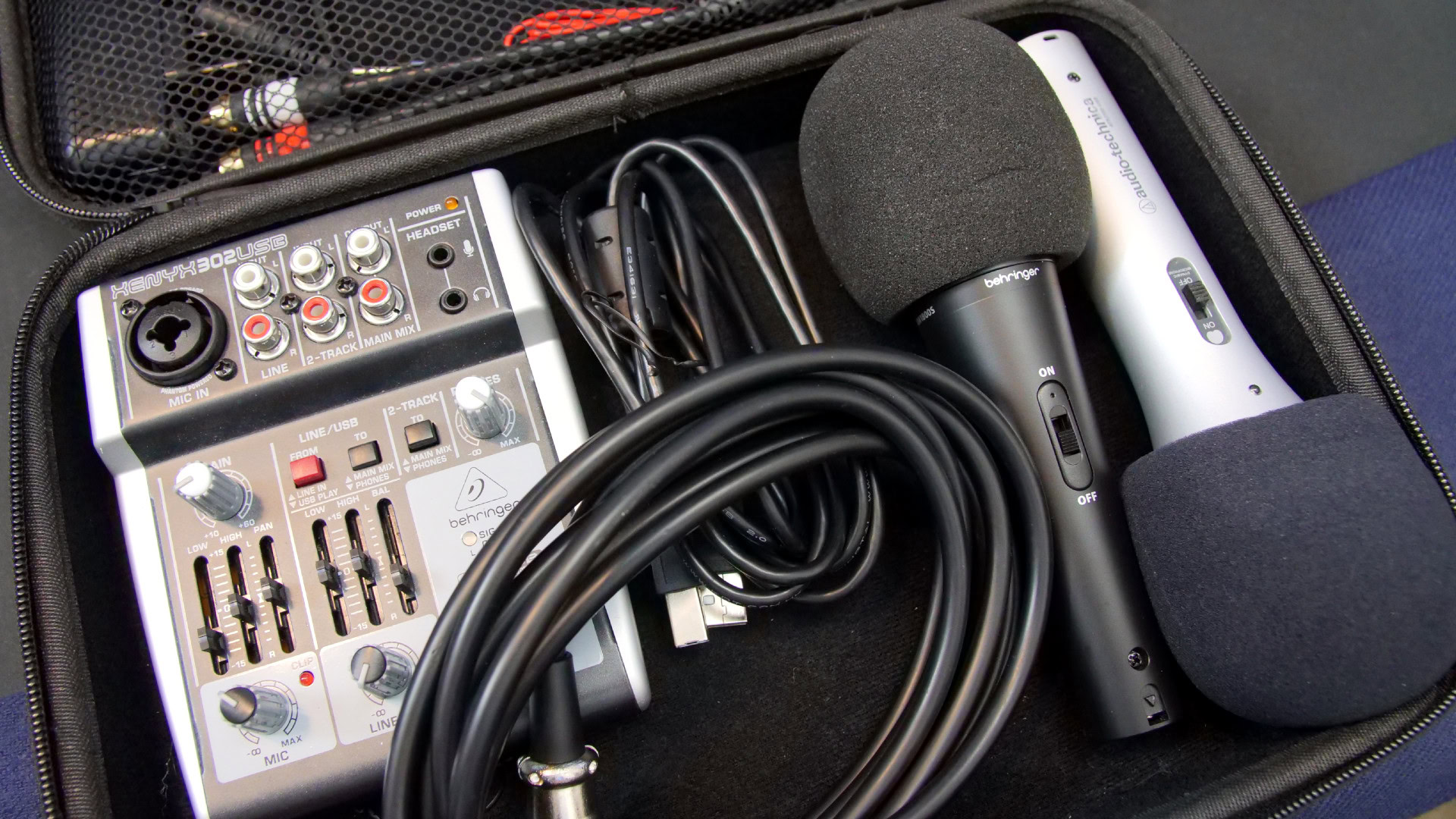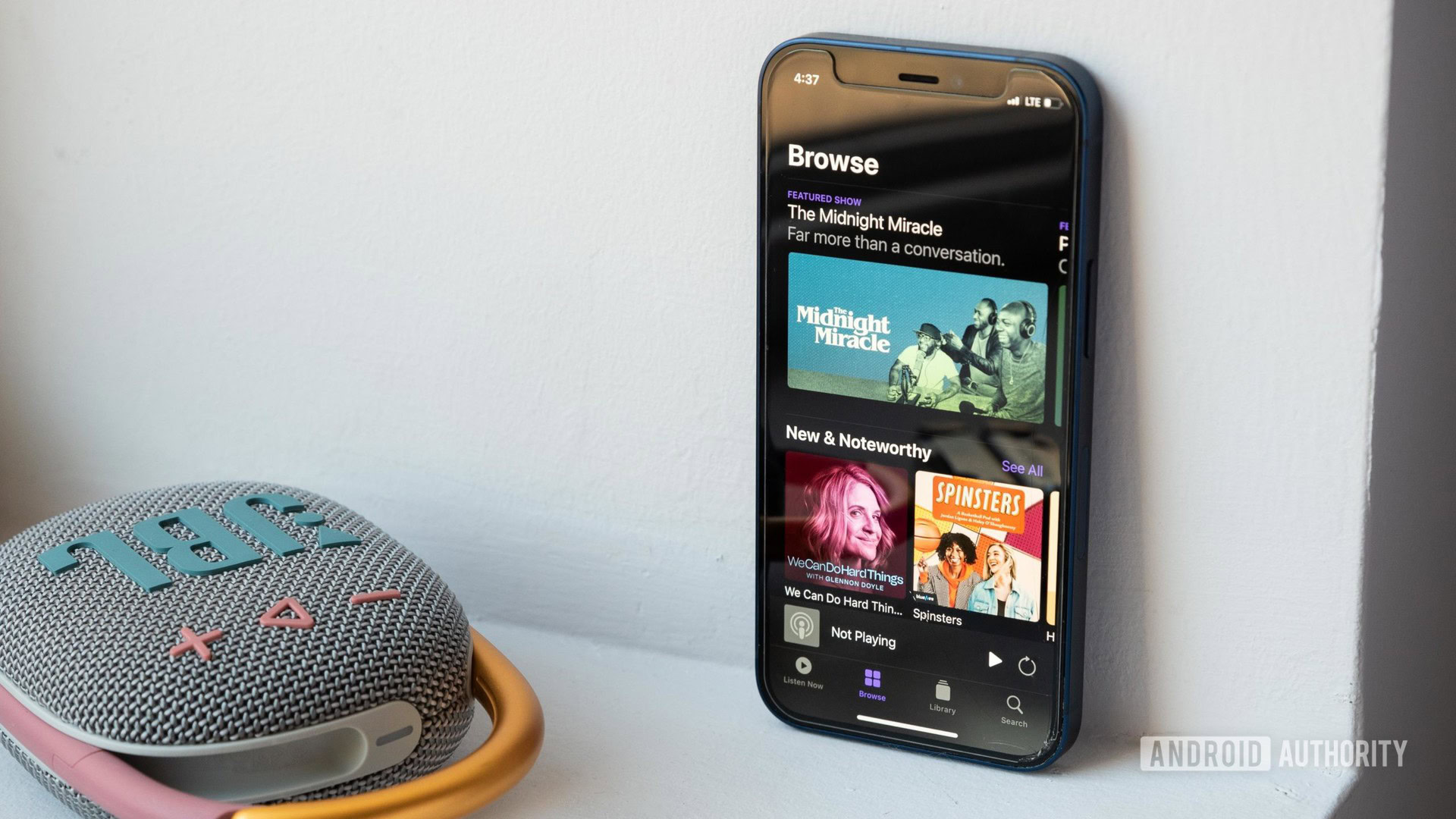Affiliate links on Android Authority may earn us a commission. Learn more.
What is a podcast? How to listen and more explained
Published onJuly 23, 2021
Podcasts have taken off hugely since the term was first coined in 2004. The word itself is just a portmanteau of iPod and broadcast, but in the age of smartphones, the medium has really come into its own, rivaling pre-digital mediums like radio and TV.
What is a podcast, exactly? Is it a radio talk show? A documentary series? A comedy special? A radio drama? The answer to all of these is: yes!
We’ve put together this guide for the uninitiated, covering everything you need to know to start listening. Keep reading or use the content menu to learn what podcasts are, how to listen to them, and more.
What is a podcast?

A podcast is a digital audio file you can download or stream via an internet connection on several devices. Although you can sometimes listen to them live as they are recorded, typically they are pre-recorded and edited before release.
You can think of them as radio for the 21st century, but there is no standard format or length. They can range from talk shows to audio dramas to language lessons to deep dives, with everything in between. Like the top-rated Joe Rogan Experience, some even release video episodes alongside the standard audio episode.
Podcasts can range from just a few episodes to hundreds. All apps and streaming services make it easy to subscribe to your favorite shows. Subscribing means you’ll always be up to date with the latest episodes as they’re released. Depending on the publisher, this could mean anything from once daily to once every few months. Shows that release both audio and video episodes typically have two separate feeds to subscribe to.
They may also be broken into seasons like Serial, have limited runs like S-Town, or regular episodic releases like Vox’s Today, Explained. There really are very few rules for the medium, so the sky’s the limit when it comes to formats and topic selection.
Are podcasts free?

Podcasts are almost always free. This is one of the few truly defining features of the medium. Although some of them release special episodes for listeners who support the show financially, the whole point of podcasting is to reach as wide an audience as possible, removing as many barriers as possible for potential listeners.
With that said, some podcasts might be attached to extra fees if you want special access or added functionality. Some podcasts might be exclusive to a certain platform like Spotify, for example, which offers subscription services to those who want added functionality. You might get exclusive bonus episodes, early access, or ad-free downloads.
How do podcasts make money?
If podcasts are free, then you might be wondering how they make money. The truth is that many shows do not make money, and are made at least initially as a fan project. The low-cost format lends itself nicely to niche interests, and as of April 2021, there are well over two million podcasts with tens of millions of episodes to listen to.
Obviously, the goal of professional podcasters is to make money, and there are a few ways to do that. Most podcasts make money by taking sponsorships and including advertisements. Like radio, these are typically inserted in short commercial breaks throughout the episode. Others, like the BBC or NPR, are at least partially financed by governments or other organizations.
That said, most shows don’t reach out to advertisers on their own. They rely on a network (more on this shortly) to find and convince advertisers to sponsor the show.
How do you listen to them?

There are many ways to listen to podcasts on your computer, smartphone, or smart home device. You can even listen on modern gaming consoles and smart TVs. Odds are, if the device has a speaker or headphone jack, you can listen to podcasts on it.
Read also: The best Bluetooth headphones
We recommend listening on your phone, since you’re more likely to have it with you at all times, but if you prefer watching episodes with video, you might want to watch on your larger computer or TV. Regardless, make sure you’re on Wi-Fi when you stream or download episodes as they can chew through your data!
How to listen to podcasts on Android:
- Download and install the Google Podcasts app.
- Alternatively, get any other podcast app for Android.
- Open Google Assistant and say “Play (show name)” or similar.
How to listen to podcasts on iPhone:
- Open the Apple Podcasts app. You can also download it from the App Store, if you don’t have it.
- Download and open any of a number of podcast apps for iOS.
- Open Siri and say “Play (show name)” or similar.
How to listen on your computer:
- Navigate to the podcast’s website and click play.
- Listen on Spotify, Google Podcasts, TuneIn, or any number of streaming services.
How to listen on a smart home device:
- Activate your device and say “Play (show name) podcast” or similar.
How do I start one?

A podcast is just an audio file, which sets the barrier of entry very low if you want to start your own. In fact, once you have an idea and topic, you can record, edit, and publish an episode using just your smartphone! It’s not guaranteed to sound great, but it can be a good way to test the waters without purchasing any additional hardware.
It might seem trivial, but coming up with an idea is often the most difficult part of the process. There are millions of podcasts with friends talking about their daily lives, and while we don’t want to discourage you from recording whatever you like, you should be realistic about what people want to listen to if you want to build an audience.
Obviously, most serious podcasters invest in equipment like podcasting microphones, headphones, and audio software to make their podcasts sound as good as possible. Check out the article below for more details about how you can start a podcast from the comfort of your own home.
Read also: How to start a podcast from home
Once you have a good concept for your creation and the equipment to record high-quality audio, the next thing you need to find is an audience. If it’s a niche topic, sharing your episodes in niche communities is a great way to spread the word. When things get more serious, you should also consider joining a podcast network.
Also consider: Start your own YouTube channel
What is a network?
A podcast network is a group of podcasts that work together to build a larger distribution network, enhance relationships with advertisers, or even share production costs. Not only does this make a host’s job easier, but it can also expand their reach with cross-promotion.
This arrangement is also great for advertisers, since they can negotiate with a single entity for ads on various shows about different topics. These tasks aren’t typically what podcasters get into the business to do, so they can, in turn, focus on what they do best: making more great episodes.
Some podcast networks are owned by a larger company that handles distribution. For example, Gimlet Media is owned by Spotify, which also famously spent millions of dollars for exclusive distribution of the Joe Rogan Experience.
Joining a network is almost always worth it for new creators, but you should make sure to join one that fits your topic and style. You’ll need a great idea and an even better pitch for the podcast to be successful. It can’t help to have at least a few sample episodes under your belt, either.
Some of the most prestigious networks:
What are the best podcasts?

The best podcasts for you to listen to will depend heavily on what you’re interested in. Nowadays, there are millions of shows to choose from, with tens of millions of episodes already published. No matter what niche interest you have, there’s probably one for it if you do a little searching.
If you just want to test the waters, we’ve put together a variety of lists based on genre or network. Pick your favorites from one of the articles in the list below, and start listening right away!
You can also take a look at our lists of the best music apps, which often have access to podcasts. If, on the other hand, you prefer video, we also have a list of the best streaming services in existence.